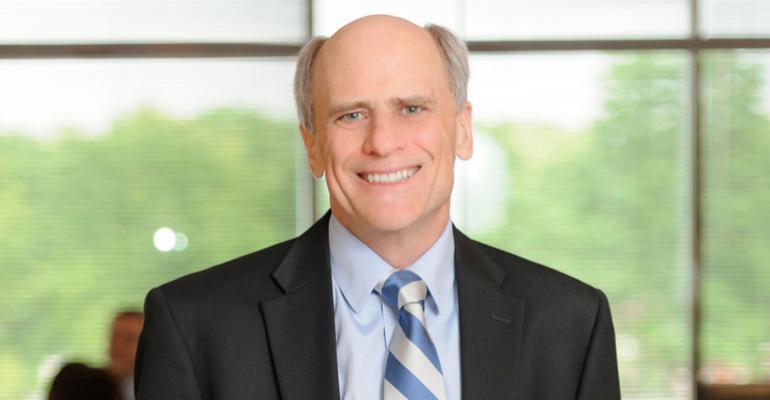Larry Swedroe, director of research for Buckingham Strategic Wealth, doesn’t pull any punches when it comes to his views on exchange traded funds (ETFs).
“Ninety-nine percent of ETFs out there are garbage—marketing hype,” he tells WealthManagement.com. “They are products meant to be sold, not bought.”
And Swedroe should know. In addition to a long and storied career in the investment business, he’s the author of multiple books about the subject. His latest, Your Complete Guide to a Successful and Secure Retirement, is out this month.
He gave Wealth Management a full rundown of his opinions about ETFs.
Wealth Management: Do you think that broad-based, low-fee ETFs are the best for investors?
Larry Swedroe: I want to be highly concentrated in the factors that I want, but broadly diversified. Large-cap stocks move mostly on a systemic basis, so I’d want funds with 100 to 200 stocks. Small-cap is a lot more idiosyncratic, so I’d want 500 to 600 stocks there. I don’t want idiosyncratic stock risk, I want idiosyncratic factor risk.
What you really want is a barbell strategy. One end is owning all of the market in the cheapest way. Then you want the concentration that gives you the most exposure to the factors that you want. The more you load up on factors, the more diversity you give up. You have to balance it.
WM: What do you see as the benefits of ETFs?
LS: The big benefit is the tax advantage. As a one-time investment, there’s a benefit to the low cost of trading. Expenses tend to be lower. The fact that you can trade intraday is touted as a positive, but it’s really a negative, because it can tempt you into trading when you’re better off not trading.
WM: What are the other negatives?
LS: There are many things to be careful of. All these smart beta funds are something to be wary of. The term “smart beta” is close to an oxymoron. The beta is just exposure to a factor that has unique risk. There’s nothing smart about it, per se. Smart beta is mostly marketing.
WM: Are you concerned about stock concentration in the hands of ETFs?
LS: No, I think that’s a phony argument. Fund families like Vanguard are becoming very active in good corporate governance issues. Twenty-five years ago, retail investors had about 1 percent of their assets in passive. Now it’s about 15 percent.
While the trend is big among institutions too, individuals are moving maybe 1 percent of their assets from active to passive per year. Meanwhile, the percentage of trading from institutions has gone up to 95 percent. These arguments are phony. We’re nowhere near where this can be a problem.
WM: What do you think about niche ETFs?
LS: Ninety-nine percent of ETFs out there are garbage—marketing hype. They are products meant to be sold, not bought. There’s a factor zoo: about 600 funds.
There are five traits a fund should have:
Evidence of a premise that’s persistent over a long period is key, and it must be pervasive across asset classes, industries, etc. It also has to be robust for definitions, such as different measurements of value. You want to get confidence this will persist in the future. There has to be an explanation for why the opportunity exists. Finally, It has to survive implementation costs, turnover and trading.
That’s not there for things like robotics and water. There’s no evidence that you might find those things mispriced. The evidence gets worse for active managers. People don’t understand the difference between information and relevant information.
If there’s a water shortage, say, I’m not the only one who knows it. It’s already built into the price. The market is sufficiently efficient that playing that game makes no sense, unless you know more than others. And the odds of that are pretty low. Stay away from sector ETFs and most of smart beta.
WM: What do you think about actively managed ETFs?
LS: That’s a loser’s game as much as mutual funds. I don’t like playing a game where the odds are 90 percent against me. The possibility of winning the active manager game is like the lottery and Las Vegas casinos. It’s OK for entertainment, but you shouldn’t take your IRA account.
WM: As for future ETF trends, which ones do you think will be positive and which negative?
LS: Wall Street is great at creating demand. I think bitcoin should never be considered an investment because there is unlimited supply. It’s pure speculation. Individuals have a history of manias—dot.com, biotech, bowling alleys in the 1960s, tulip bulbs, etc. Bitcoin is just the fear of missing out on an investment. There are proposals for bitcoin ETFs, despite the fact it has declined about 80 percent over the last year.
Wall Street will keep creating it and then create marketing demand. There are a zoo of ETFs today. Maybe a handful or two are worth considering. The rest are hype. Most investors allow hype and hope to triumph over wisdom and experience.
That doesn’t mean some good ones won’t be introduced as we learn what factors drive returns. If we learn something new, I would expect that to be introduced. Quality and profitability were only introduced in the literature starting in 2012-13.
Larry Swedroe is scheduled to speak at the Inside ETFs Conference running from February 10-13.





